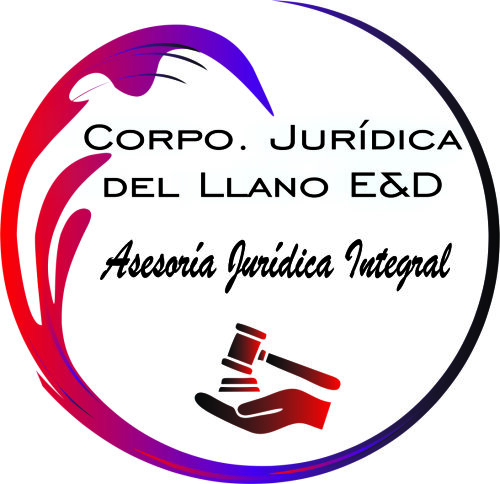Best Family Lawyers in Yopal
Share your needs with us, get contacted by law firms.
Free. Takes 2 min.
Free Guide to Hiring a Family Lawyer
List of the best lawyers in Yopal, Colombia
About Family Law in Yopal, Colombia
Family law in Yopal, Colombia, is a branch of legal practice focused on resolving matters related to family relationships, such as marriage, divorce, child custody, domestic partnership, inheritance, and domestic violence. The city of Yopal, located in the department of Casanare, applies national Colombian legislation with a few local adaptations in administrative procedures. Family law matters are often handled through family courts and can involve mediation or judicial processes, depending on the complexity of the case.
Why You May Need a Lawyer
There are several situations where seeking legal help in family law can be essential. Some of the most common include:
- Filing for divorce or legal separation
- Establishing or disputing child custody and visitation rights
- Pursuing child or spousal support claims
- Legal recognition of domestic partnerships or common law marriages (uniones maritales de hecho)
- Addressing domestic violence or seeking protective orders
- Dividing property and assets after the dissolution of a partnership or marriage
- Handling adoption processes
- Settling issues related to inheritance and succession
- Managing parental authority disputes
- Resolving family conflicts through mediation or negotiation
Local Laws Overview
Family law in Yopal operates under the framework of Colombia’s national codes, mainly the Civil Code and the Family Code. Some key aspects relevant to Yopal residents include:
- Marriage and Divorce - Legal marriage and de facto unions are recognized. Divorce can be processed through the courts or via notary if uncontested.
- Child Custody and Visitation - The best interests of the child always take priority. Both parents typically have rights and responsibilities, with courts making decisions when parents cannot agree.
- Alimony and Child Support - Financial obligations toward children and former partners are enforced by law. Amounts are determined based on the needs and economic capacity of the parties involved.
- Domestic Violence - Protective measures and orders can be obtained through police and family courts, and legal processes are in place for victims to seek security and justice.
- Adoption - Adoption is carefully regulated with thorough background checks and procedures that prioritize the child's wellbeing.
- Succession and Inheritance - The distribution of property after a person’s death follows established legal guidelines, particularly if no will is present.
- Alternative Dispute Resolution - Mediation and conciliation are encouraged to resolve disputes without formal litigation whenever possible.
Frequently Asked Questions
How do I start a divorce process in Yopal?
You can initiate a divorce through the family court if there is disagreement or through a notary if both parties agree on terms such as property division and child custody.
What rights do unmarried couples have in Yopal?
Unmarried couples living together for at least two years may be recognized as a de facto marital union, granting certain property and inheritance rights similar to married couples.
How is child custody decided?
Custody decisions are based on the best interests of the child, considering their well-being, safety, and emotional needs. Both parents usually retain some guardianship unless this is not in the child’s best interest.
What procedures exist for child support?
Child support is calculated using the needs of the child and the financial resources of both parents. If there is a dispute, the family judge will determine the appropriate amount.
Can I get a restraining order for domestic violence?
Yes, victims of domestic violence can request protective measures from family courts or local law enforcement, which may include restraining orders and temporary custody modifications.
What is required for an adoption in Yopal?
Adoptions in Yopal must follow a legal process involving an investigation by the Colombian Family Welfare Institute (ICBF) or authorized adoption agencies to ensure the best interests of the child are served.
How are properties divided after a divorce or separation?
Jointly acquired property during marriage or de facto partnership is typically divided equally, unless there are legally recognized reasons for a different arrangement.
What happens if a parent does not pay child support?
There are legal consequences for non-payment, including wage garnishment, restrictions on passports, and even potential jail time for persistent offenders.
How can I recognize or challenge paternity?
Paternity can be established or disputed through a judicial process that may involve DNA testing. This affects parental rights, responsibilities, and child support obligations.
Is family mediation available in Yopal?
Yes, local family offices offer mediation and conciliation services to help resolve disputes amicably before resorting to court procedures.
Additional Resources
If you need more information or assistance, the following resources may be helpful:
- Instituto Colombiano de Bienestar Familiar (ICBF) - Responsible for child protection, adoption, and family welfare services
- Defensoría del Pueblo (Ombudsman’s Office) - Offers legal guidance and support for human and family rights
- Notarías de Yopal - Local notaries provide legal services for marriages, divorces by mutual agreement, and property agreements
- Comisaría de Familia - Family commissioners handle matters related to domestic violence, child protection, and urgent family disputes
- Juzgados de Familia de Yopal - Family courts process judicial cases such as custody, divorce, and alimony
Next Steps
If you need legal assistance regarding family matters in Yopal, Colombia, it is advisable to gather all relevant documents, such as marriage certificates, identification papers, and evidence related to your case. Consider speaking with a specialized family lawyer who can explain your rights and the best course of action for your situation. You may also approach local government offices or legal aid organizations for preliminary advice or to initiate mediation. Take note of deadlines and legal requirements to ensure your rights are protected throughout the process.
Lawzana helps you find the best lawyers and law firms in Yopal through a curated and pre-screened list of qualified legal professionals. Our platform offers rankings and detailed profiles of attorneys and law firms, allowing you to compare based on practice areas, including Family, experience, and client feedback.
Each profile includes a description of the firm's areas of practice, client reviews, team members and partners, year of establishment, spoken languages, office locations, contact information, social media presence, and any published articles or resources. Most firms on our platform speak English and are experienced in both local and international legal matters.
Get a quote from top-rated law firms in Yopal, Colombia — quickly, securely, and without unnecessary hassle.
Disclaimer:
The information provided on this page is for general informational purposes only and does not constitute legal advice. While we strive to ensure the accuracy and relevance of the content, legal information may change over time, and interpretations of the law can vary. You should always consult with a qualified legal professional for advice specific to your situation.
We disclaim all liability for actions taken or not taken based on the content of this page. If you believe any information is incorrect or outdated, please contact us, and we will review and update it where appropriate.
Browse family law firms by service in Yopal, Colombia
Yopal, Colombia Attorneys in related practice areas.









